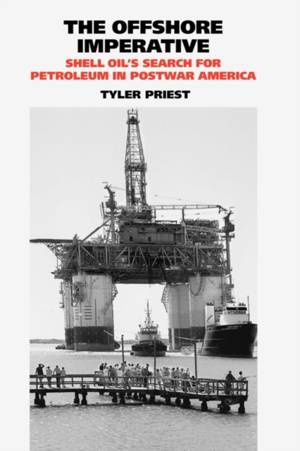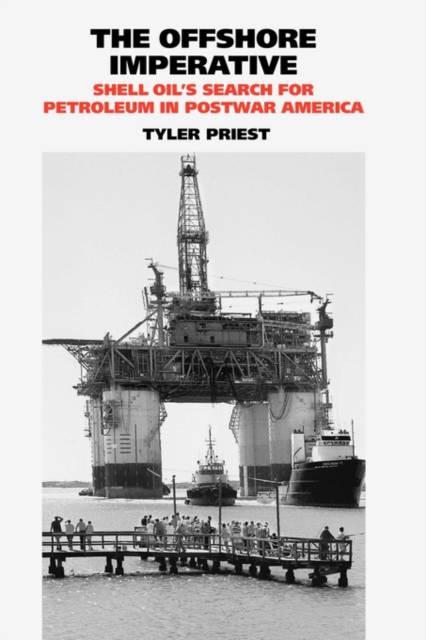
Je cadeautjes zeker op tijd in huis hebben voor de feestdagen? Kom langs in onze winkels en vind het perfecte geschenk!
- Afhalen na 1 uur in een winkel met voorraad
- Gratis thuislevering in België vanaf € 30
- Ruim aanbod met 7 miljoen producten
Je cadeautjes zeker op tijd in huis hebben voor de feestdagen? Kom langs in onze winkels en vind het perfecte geschenk!
- Afhalen na 1 uur in een winkel met voorraad
- Gratis thuislevering in België vanaf € 30
- Ruim aanbod met 7 miljoen producten
Zoeken
€ 34,45
+ 68 punten
Omschrijving
After World War II, the discovery and production of onshore oil in the United States faced decline. As a result, offshore prospects in the Gulf of Mexico took on new strategic value. Shell Oil Company pioneered many of the early moves offshore and continues to lead the way into "deepwater." Tyler Priest's study is the first time the modern history of Shell Oil has been told in any detail. Drawing on interviews with Shell retirees and many other sources, Priest relates how the imagination, talent, and hard work of personnel at all levels shaped the evolution of the company. The narrative also covers important aspects of Shell Oil's corporate evolution, but the company's pioneering steps into the deepwater fields of the Gulf of Mexico are its signature achievement. Priest's study demonstrates that engineers did not suddenly create methods for finding and producing oil and gas from astounding water depths. Rather, they built on a half-century of accumulated knowledge and improvements to technical systems. Shell Oil's story is unique, but it also illuminates the modern history of the petroleum industry. As Priest demonstrates, this company's experiences offer a starting point for examining the understudied topics of strategic decision-making, scientific research, management of technology, and corporate organization and culture within modern oil companies, as well as how these activities applied to offshore development.
". . . tells a dramatic story of imaginative businessmen and engineers who propelled Shell forward in the search for ways to locate and recover oil from the depths of the sea."--Southwestern Historical Quarterly
"This book's narrative is sustained throughout by easily understood explanations of the technical details of drilling and production."--Journal of Southern History
". . . tells a dramatic story of imaginative businessmen and engineers who propelled Shell forward in the search for ways to locate and recover oil from the depths of the sea."--Southwestern Historical Quarterly
"This book's narrative is sustained throughout by easily understood explanations of the technical details of drilling and production."--Journal of Southern History
Specificaties
Betrokkenen
- Auteur(s):
- Uitgeverij:
Inhoud
- Aantal bladzijden:
- 336
- Taal:
- Engels
- Reeks:
Eigenschappen
- Productcode (EAN):
- 9781603441568
- Verschijningsdatum:
- 1/10/2009
- Uitvoering:
- Paperback
- Formaat:
- Trade paperback (VS)
- Afmetingen:
- 152 mm x 229 mm
- Gewicht:
- 485 g

Alleen bij Standaard Boekhandel
+ 68 punten op je klantenkaart van Standaard Boekhandel
Beoordelingen
We publiceren alleen reviews die voldoen aan de voorwaarden voor reviews. Bekijk onze voorwaarden voor reviews.









